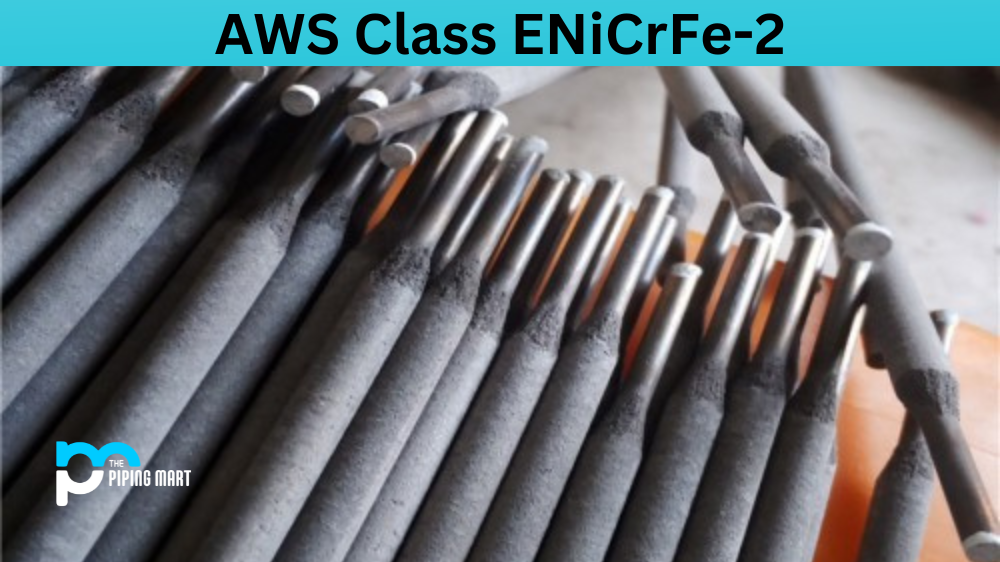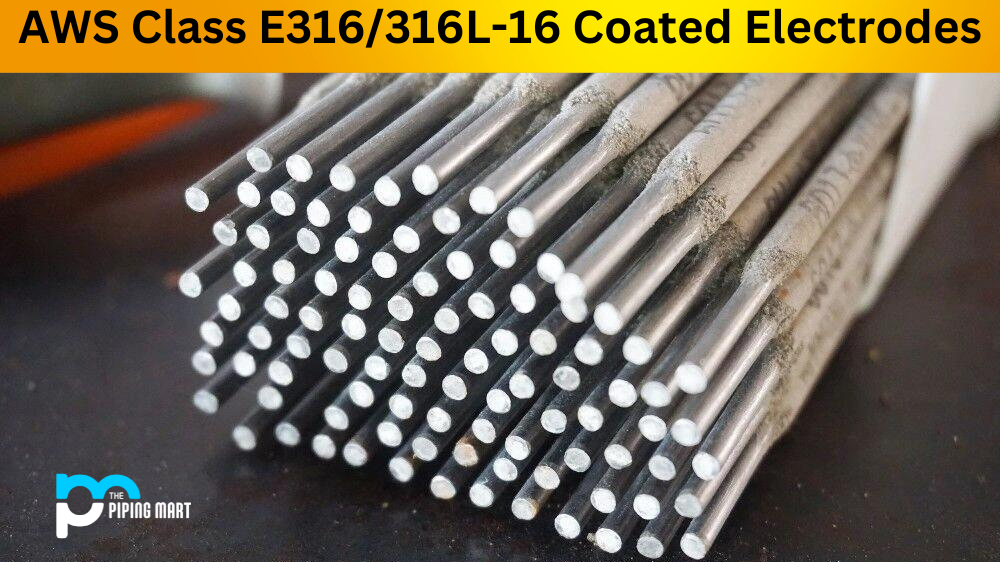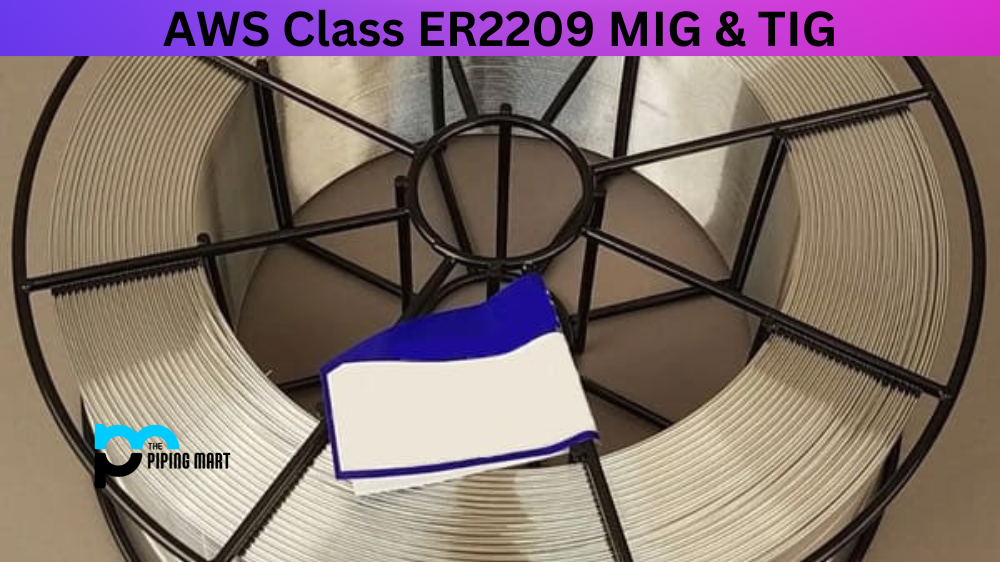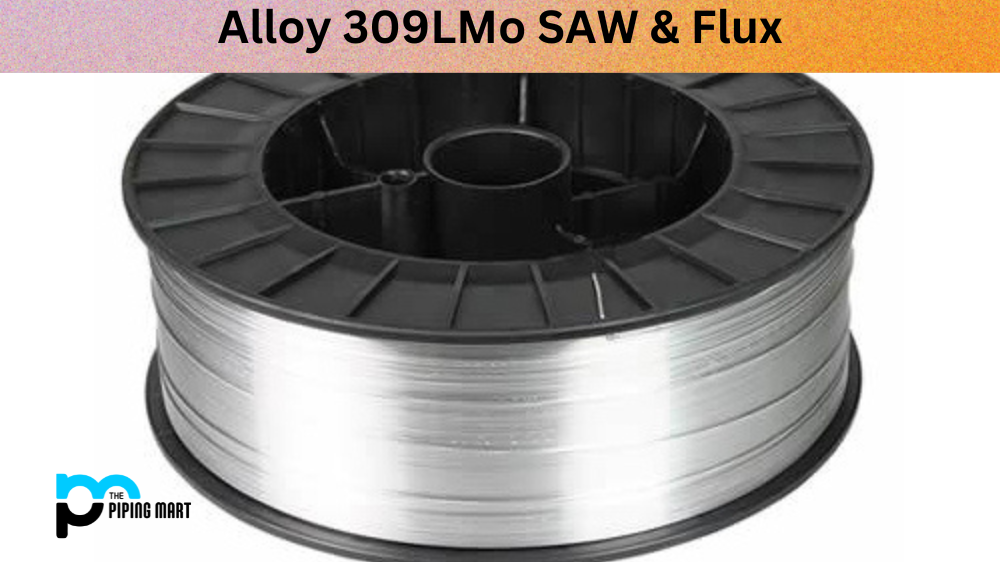If you are in the welding industry or related sectors, you might have encountered AWS Class ENiCrFe-2. AWS stands for American Welding Society, providing technical standards and guidelines for welding procedures. ENiCrFe-2 is one of the AWS classifications that one should know about. It is also referred to as Inconel 625. This blog post aims to provide comprehensive knowledge on AWS Class ENiCrFe-2, including its composition, physical and mechanical properties, uses, and more.
What is AWS Class ENiCrFe-2 Coated Electrode?
AWS Class ENiCrFe-2 welding electrode is a family of nickel-chromium-iron alloyed welding electrodes. These welding electrodes are designed for use when welding on stainless steel or nickel alloy components and are often the best choice due to their superior corrosion resistance and ductility properties. They have an austenitic structure which enables them to resist embrittlement and cracking, even at elevated temperatures. The tensile strength of these filler wire is very high, up to 900MPa for certain variants, making them ideal for critical load-bearing applications such as pressure vessels or nuclear reactors. With their wide range of chemical compositions available (ENiCrFe1 – 35Ni20Cr50Fe carrying 200ksi yield strength), they offer users greater flexibility in material selection for different welding jobs without compromising quality.
ENiCrFe-2 Welding Rod Composition
AWS Class ENiCrFe-2 welding rod is primarily comprised of nickel, chromium, and molybdenum. It also contains niobium, iron, and other trace elements. With excellent corrosion resistance and high-temperature strength, its composition makes it a popular choice for a wide variety of industrial applications. The nickel present enhances its strength and ductility and enables it to withstand high temperatures without deformation.
| C | Mn | Fe | P | S | Si | Cu | Ni | Cr | Nb+Ta | Mo | Other |
| 0.10 | 1.0-3.5 | 12.0 | 0.03 | 0.02 | 0.75 | 0.50 | 62.0 | 13.0-17.0 | 0.5-3.0 | 0.5-2.5 | 0.50 |
ENiCrFe-2 Coated Electrode Physical Properties
AWS Class ENiCrFe-2 filler wire has high tensile strength and an excellent ability to withstand pressure and temperature variations. It can be shaped and moulded due to its exceptional malleability, making it the perfect material for welding and other industrial purposes. The material is resistant to oxidation and corrosion, making it ideal for high-temperature environments.
ENiCrFe-2 Welding Electrode Mechanical Properties
AWS Class ENiCrFe-2 coated electrode exhibits excellent tensile strength, making it the most preferred material for aerospace and marine engineering industries. It is ideal for manufacturing gas turbine engine components, aircraft ducting systems, heat exchangers, and seawater-corrosion-resistant equipment. Its corrosion resistance enables it to endure harsh environments, including burning fossil fuel or in locations where other metals experience heavy wear and tear.
| Tensile Strength | 89,000psi |
| Yield Strength | 72,000psi |
| Elongation | 36% |
ENiCrFe-2 Coated Electrode Trade Names
| Class | UNS | Oxford Alloys | Special Metals | BOHLER | UTP | ESAB |
| ENiCrFe-2 | W86133 | Alloy A | Incoweld A | BOHLER FOX NIBAS 70/20 | UTP 7015 MO | OK NICRFE-2 |
ENiCrFe-2 Coated Electrode Parameters
| Diameter | Process | Volt | Amps (flat) | Amps (V/OH) | |
| in | (mm) | ||||
| 3/32 | (2.4) | SMAW | 24-28 | 70-85 | 65-75 |
| 1/8 | (3.2) | SMAW | 26-30 | 85-110 | 80-90 |
| 5/32 | (4.0) | SMAW | 28-32 | 110-140 | 100-120 |
| 3/16 | (4.8) | SMAW | 28-32 | 120-160 | 110-130 |
ENiCrFe-2 Welding Electrode Uses
Given the physical and mechanical properties of AWS Class ENiCrFe-2 filler wire, it finds many industrial applications. Apart from the aerospace mentioned above and marine industries, it is also used in the chemical processing and petrochemical industries. This material is ideal for manufacturing cryogenic tankers to transport liquefied gases at low temperatures. It also manufactures parts or equipment for feedwater heaters, hydrocarbon processing systems, and many other industrial applications.
ENiCrFe-2 Coated Electrode Heat Treatment
Most alloys of AWS Class ENiCrFe-2 filler metal produced are designed for forming and welding. Suitable heat treatment depends mainly on the finished product’s intended outcome and desired results. The welding material softens considerably when heated for long periods, so intermittent processes should be adopted for heat treatment. For more advanced considerations, consult material experts, as no standardized heat treatment procedures are available.
ENiCrFe-2 Welding Electrode Corrosion Resistant
Corrosion is a common issue faced in the welding and metal manufacturing industries. AWS Class ENiCrFe-2 welding wire is highly resistant to corrosion, oxidation and dilute solutions of acids and alkalis. It possesses exceptional resistance to pitting, crevice corrosion, and intergranular corrosion. These properties make it suitable for seawater corrosion-resistant applications since it can resist corrosion even when exposed to seawater or other saltwater solutions.
Conclusion
AWS Class ENiCrFe-2 welding alloy metal is a versatile and reliable material highly suitable for numerous industrial purposes, particularly in fields dealing with high temperatures and harsh environments, such as in aerospace and marine engineering, chemical processing, and petrochemical industries. AWS Class ENiCrFe-2 coated electrode has excellent physical and mechanical properties, making it a top choice for many builders and manufacturers. The ability of the alloy to withstand corrosion, oxidation, heat, and pressure makes it a popular pick among welders and other professionals. This informative blog gave insights into AWS Class ENiCrFe-2 welding electrode composition, physical and mechanical properties, uses, heat treatment, and corrosion-resistant properties. Knowing these properties will help you choose the right material for your industrial applications, ensuring a robust and stable finished product.

A passionate metal industry expert and blogger. With over 5 years of experience in the field, Palak brings a wealth of knowledge and insight to her writing. Whether discussing the latest trends in the metal industry or sharing tips, she is dedicated to helping others succeed in the metal industry.




